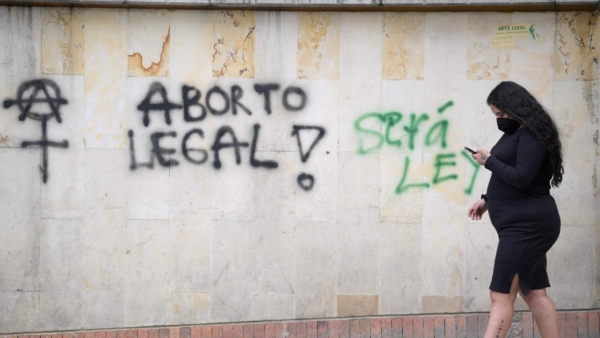In mid-November, a Paraguayan government hotline received a report of suspected sexual abuse against a 13-year-old Indigenous girl in a community near the border with Brazil. The case was assigned to Roselí Echeguren, a lawyer in a government office for the protection of children’s rights in Paraguay.
Echeguren told Human Rights Watch that community members had noticed that the girl had started to wear a girdle. Echeguren went to see the girl and took her to the hospital, where doctors confirmed that she was pregnant. The girl told her she had kept silent “out of fear.”
The authorities opened a criminal investigation into sexual abuse, and community leaders arranged for the girl to move out of her house. Several psychologists have since interviewed her. But Echeguren said that nobody had asked her a crucial question: whether she wants to continue the pregnancy. She said that’s because of Paraguay’s draconian abortion law.
In Paraguay, abortion is legal only to save the life of a pregnant person. Women and girls are forced to continue unwanted pregnancies even in cases of rape or incest, pregnancies that pose a serious—but not life-threatening—health risk, and pregnancies in which the fetus has no hope of surviving outside the womb. This is one of the most restrictive abortion laws in Latin America.
The narrow exception is not enough to protect lives, much less girls’ health and dignity. Human Rights Watch research in the region shows that strict abortion prohibitions do not stop women and girls from having abortions; they just force them to have unsafe abortions, putting their lives and health at risk.
In 2018, a 14-year-old Paraguayan girl who had become pregnant after being raped by a 37-year-old man died as doctors performed an emergency cesarean section, trying desperately to save her and the baby. She had already spent several weeks in the hospital for pregnancy-related complications. The World Health Organization (WHO) has reported that girls between ages 10 and 14 face a higher risk of complications and death as a result of pregnancy than older girls or women.
Health Ministry data collected by the Coordinator for the Rights of Children and Adolescents, a coalition of Paraguayan nongovernmental organizations, shows that, on average, since 2013, two girls a day between the ages of 10 and 14 give birth in Paraguay, even though sexual relations with children under 14 is rape under Paraguayan law. Amnesty International reported last year that Paraguay does not have an adequate system to prevent sexual violence and protect its victims.
Indigenous girls and women in Paraguay are particularly at risk because, as the UN Committee on the Elimination of Discrimination against Women pointed out in 2017, they are disproportionately affected by poverty, experience discrimination, and have difficulty getting health care, education, and jobs.
Whatever the 13-year-old rape victim Echeguren would have decided about her pregnancy, she should have had the option to end it safely and legally. Each year, hundreds of girls like her suffer, often in fearful silence, deprived of information and power over their bodies and lives. These are the brutal consequences of Paraguay’s unjust abortion law.
Paraguay should decriminalize abortion, but allowing for even narrow exceptions, in addition to protecting the person’s life, would save lives and protect health and dignity. It is essential to at least permit doctors, with their patients’ informed consent, to end a pregnancy when it results from rape or incest, when a fetus will not survive, or when necessary to protect a person’s health. Paraguayan authorities should act now, before any more girls and women have to suffer unnecessarily.












